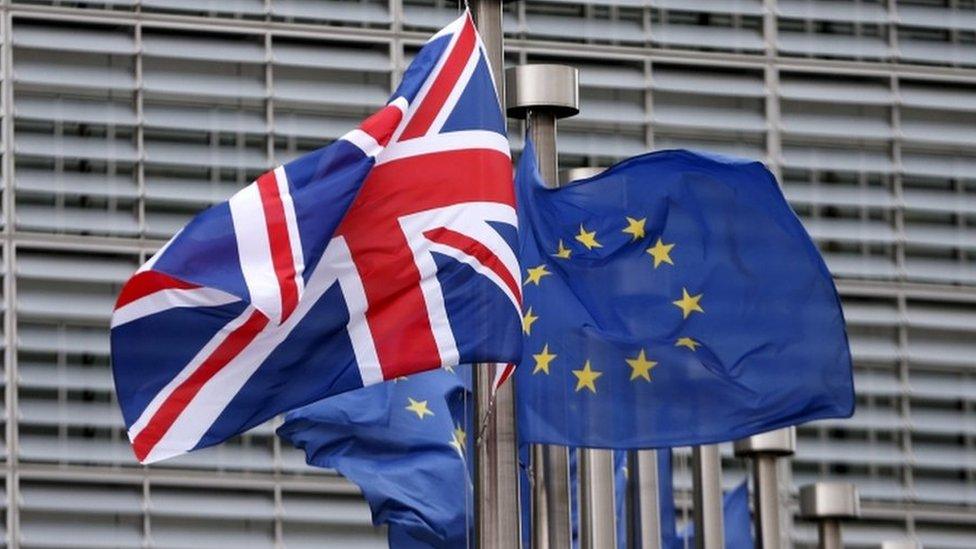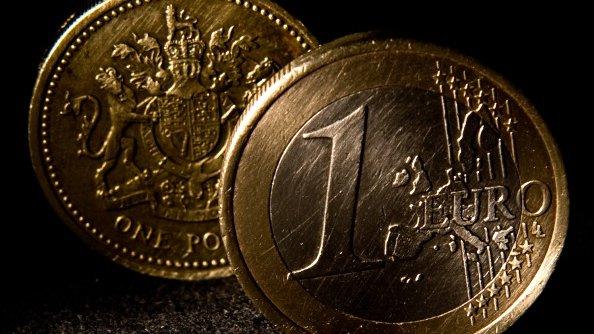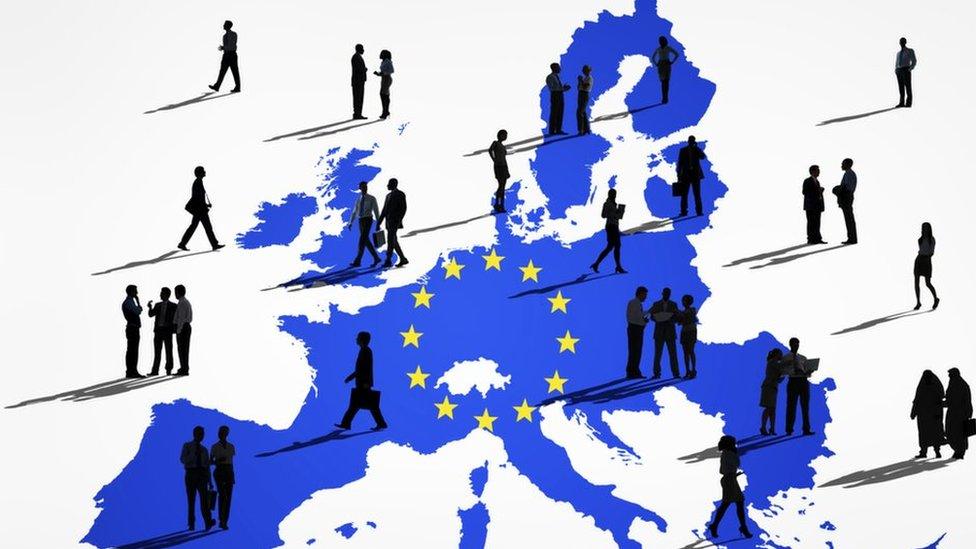EU referendum: CBI warns of UK exit 'serious shock'
- Published

A UK exit from the EU would cause a "serious economic shock", potentially costing the country £100bn and nearly one million jobs, according to a report commissioned by the CBI.
The business lobby group said a study found that a vote to leave would have "negative echoes" lasting many years.
It said the cost could be as much as 5% of GDP and 950,000 jobs by 2020.
But Vote Leave chief executive Matthew Elliott said employment and the economy would continue to grow after an exit.
He said that "even in the CBI's skewed choice of scenarios for exit" it was "forced to admit" that would happen.
CBI director general Carolyn Fairbairn said an EU exit following the referendum on 23 June "would be a real blow for living standards, jobs and growth".
She said: "The savings from reduced EU budget contributions and regulation are greatly outweighed by the negative impact on trade and investment.
"Even in the best case this would cause a serious shock to the UK economy."
In its report for the CBI, accountancy firm PwC examined what would happen if Britain signed a free trade agreement with the EU within five years of an exit vote or decided to conduct business as a member of the World Trade Organisation. In that instance, it said negotiations could "prove more difficult and prolonged".
The firm forecast that if Britain voted to stay in the EU, the average annual GDP growth between 2016 and 2020 would be 2.3%.
This compares with 1.5% economic expansion under a Free Trade Agreement (FTA) and 0.9% if the UK struck a deal as a WTO member, PwC said.
Ms Fairbairn told Radio 5 Live: "You might call it an uncertainty shock over the next five years that reduces the GDP of the economy by 3%, [and] delivers an increase in unemployment of about 500,000.
"And even in the longer run the economy would stay smaller than it would have been otherwise."

Carolyn Fairbairn said an EU exit "would be a real blow for living standards".
However, Vote Leave's Mr Elliott said that average annual economic growth in both exit scenarios between 2020 and 2030 would equal - and in some cases beat - GDP forecasts for the UK remaining in the EU.
Britain's prospects
If the UK remained in, PwC said GDP was forecast to expand on average by 2.3% between 2021 and 2025 and between 2026 and 2030.
In a free trade scenario, PwC said average annual growth would be 2.7% between 2021 and 2025, and an average of 2.3% in the years to 2030.
In a WTO agreement, average annual GDP growth would be 2.6% between 2021 and 2025 and 2.4% up to 2030, forecast PwC.
By 2020, PwC said it expected employment to reach 32.2 million but it could fall by 550,000 in the free trade scenario and by 950,000 in a WTO agreement.
Vote Leave said that jobs would still be created under either of the scenarios presented by PwC. By 2030, if Britain stayed in the EU, employment would reach 34.5 million, Vote Leave said.
If the UK left and made a free trade deal, employment would reach 34.1 million, or would hit 33.9 million in a WTO deal by 2030, according to calculations by Vote Leave.
Cost of negotiating
The PwC report said there was likely to be "significant economic and political uncertainty" if Britain voted to leave because it could take at least two years before the UK clarified its relationship with the EU over trade and other matters.
Ms Fairbairn said: "The European Union has no particular rush to want to do a deal with us, and we'd have to renegotiate 50 deals around the world that are currently run through the European Union."
However, Alan Halsall, a member of Vote Leave's campaign committee, disputed the assessment on how long it would take Britain to strike a deal on trade with EU members. "They said it would take five years - we don't think so."
Britain's biggest business lobby group released the report by PwC after a recent poll found that 80% of members questioned in a survey wanted to remain in the EU.
The CBI said it would not align itself with either side of the debate but, following the result of the survey, has set out the economic case for Britain staying within the EU.
Other models
Other organisations have modelled the potential impact on the UK of leaving the EU.
Open Europe estimated, external that if Britain were to leave the EU the economy could be 2.2% smaller in 2030 in its worst case scenario, or 1.6% bigger in the best case scenario. That's compared with the size of the economy if the UK were to stay in.
However, Open Europe said the more likely range was between -0.8% and +0.6%.
The Centre for Economic Performance, external looked at incomes per head in the UK.
It estimated that by 2030 income per capita could be between 1.3% and 2.7% less if the UK were to leave the EU, compared with staying.
- Published18 March 2016

- Published15 March 2016

- Published4 March 2016

- Published20 February 2016
